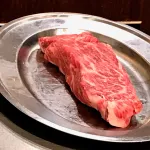Blog
Cooking in Istanbul: a cultural culinary experience

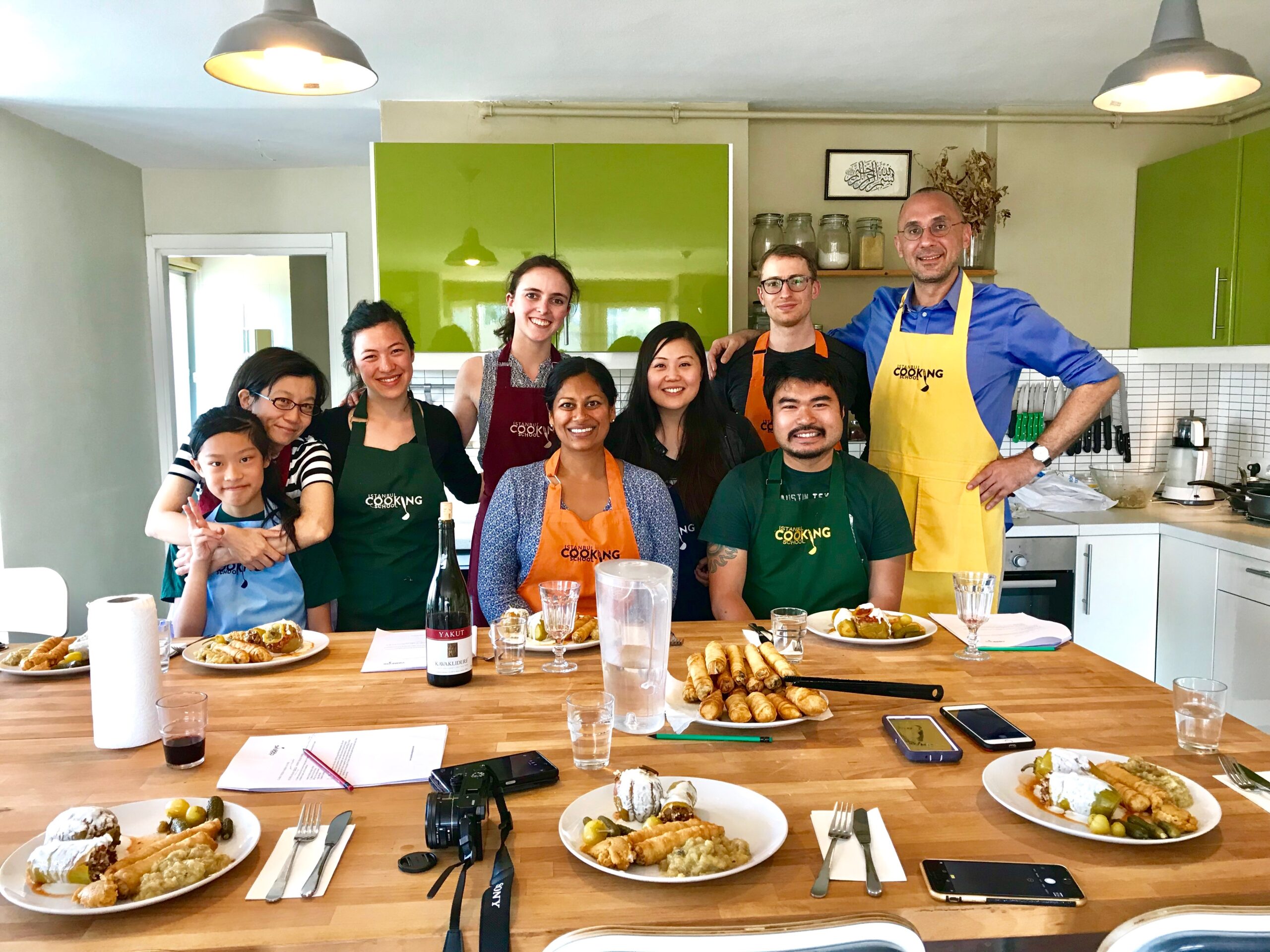
Cooking in Istanbul: a cultural culinary experience
May 15, 2018
Turkish cuisine encompasses some of the most historically significant foods in the world. The elements of the cuisine represent hundreds of years of cultural influence from Asia, Anatolia, the Balkan Peninsula, Seljuk and Ottoman empires and several other regions of the world. As the culture evolved over centuries, so did its cuisine and it only got better with time.
Before arriving in Istanbul, I knew little of the complexity and history of Turkish cuisine. In order to learn, I began my search for the best cooking class (for me) – one that integrates the region’s culture with the evolution of its cuisine. My experience in Marrakech with Traveling Spoon was excellent. In fact, it was recently featured in an article about the company. While they offered several classes in Istanbul, unfortunately, none seemed a good match for what I was seeking.
Through a brief online search, I discovered the Istanbul Cooking School. I’m typically weary of taking recreational cooking classes in schools or restaurants but after reading the “Team” section of the site, the bios of the chefs resonated with me. I connected immediately with the first one, Oguz Tuncbilek. I booked a half day course. As it turns out, Oguz was the instructor for my class.
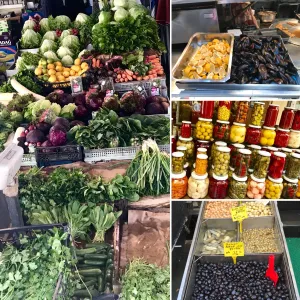
I met Oguz and our group on the famous Istiklal Street in Taksim. There were nine in the group – all foreign travelers from the US, Asia and Europe. The first part of the class involved an educational tour of the market. For two leisurely hours, we visited spice shops and produce stands, sampled stuffed mussels and Turkish delights while Oguz explained the significance of the ingredients and the traditions of Turkish dining. The Turks take quality seriously, using only the best products – spices, homemade pickles, local produce and meat, including organs from all parts of the animal, and fresh-caught fish. Early adopters of the sustainability movement, Turks eat fish mainly during fishing season.
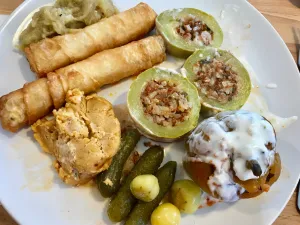
After the tour, we picked up some beer and wine for our lunch and proceeded to the school. In the center of the kitchen stood a large butcher block island with five stations, each equipped with a cutting board, vegetable peeler and chef’s knives. For the next few hours, we learned how to make biber dolmasi (meat-stuffed peppers), patlican salatasi (fire-roasted eggplant), Turkish hummus, traditional Turkish borek (cheese and herb pastries) and the decadent dessert, irmik helvası (semolina halva). Oguz engaged the group by asking questions about technique and stimulating discussion on variations for each dish. Engaging each student individually as well as collectively, he masterfully created the perfect, casual social table, one that parallels the culture of dining in Turkey.
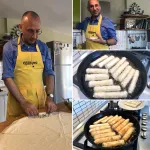
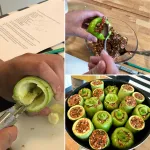
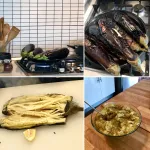
Oguz is an inspiring, passionate chef whose talent for bringing diverse people together is what makes him successful. Being a self-taught chef myself, I was not looking for a cooking class. I wanted a cultural culinary experience. I left the class with a deeper knowledge and appreciation for the roots of the cuisine, its elements and its global influences. And that is why it was the perfect class for me.
Discover more from diannajacob.com
Subscribe to get the latest posts sent to your email.
Recent News
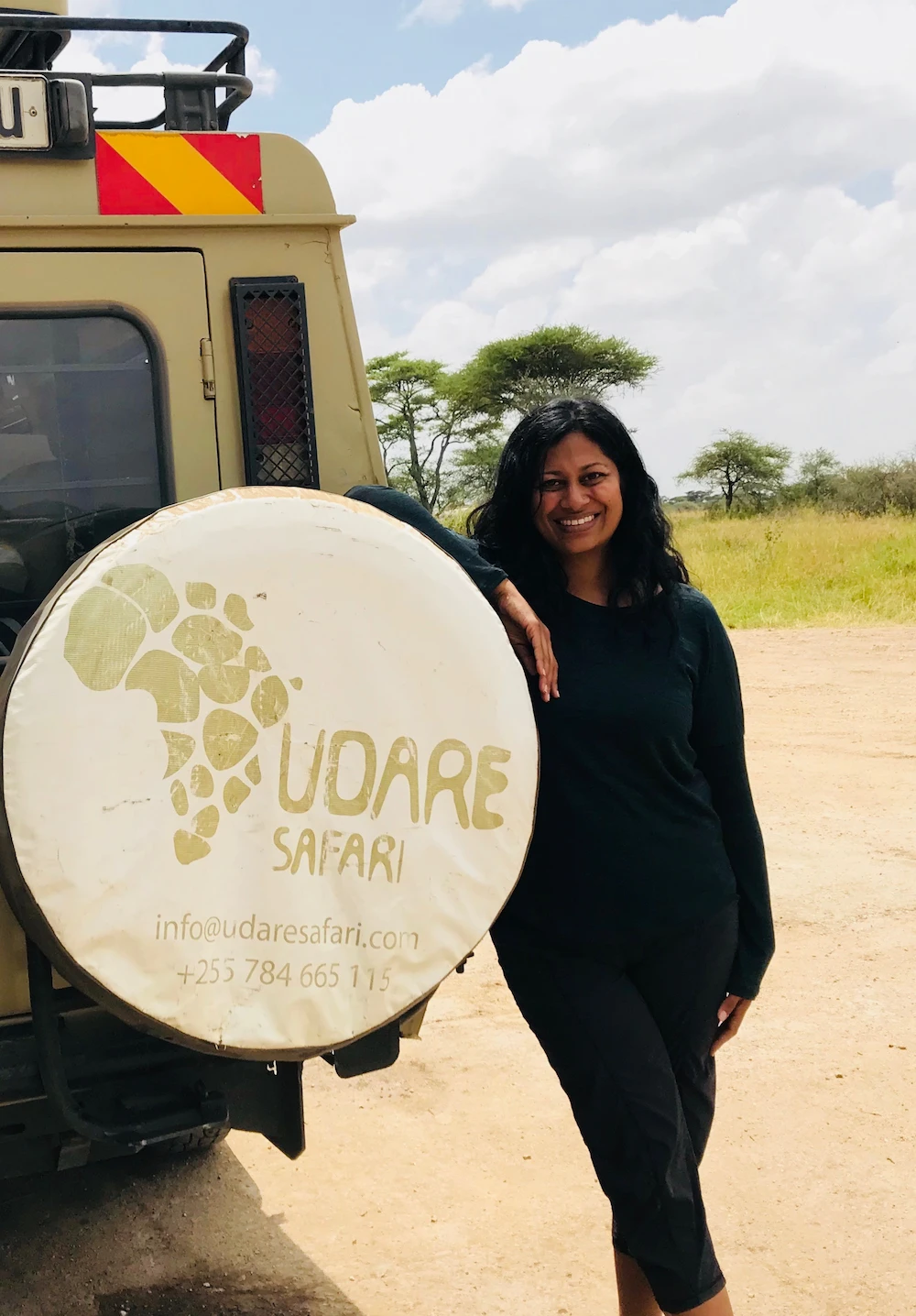
About Dianna
May 29, 2024

On Being Single and Child-Free
July 31, 2022
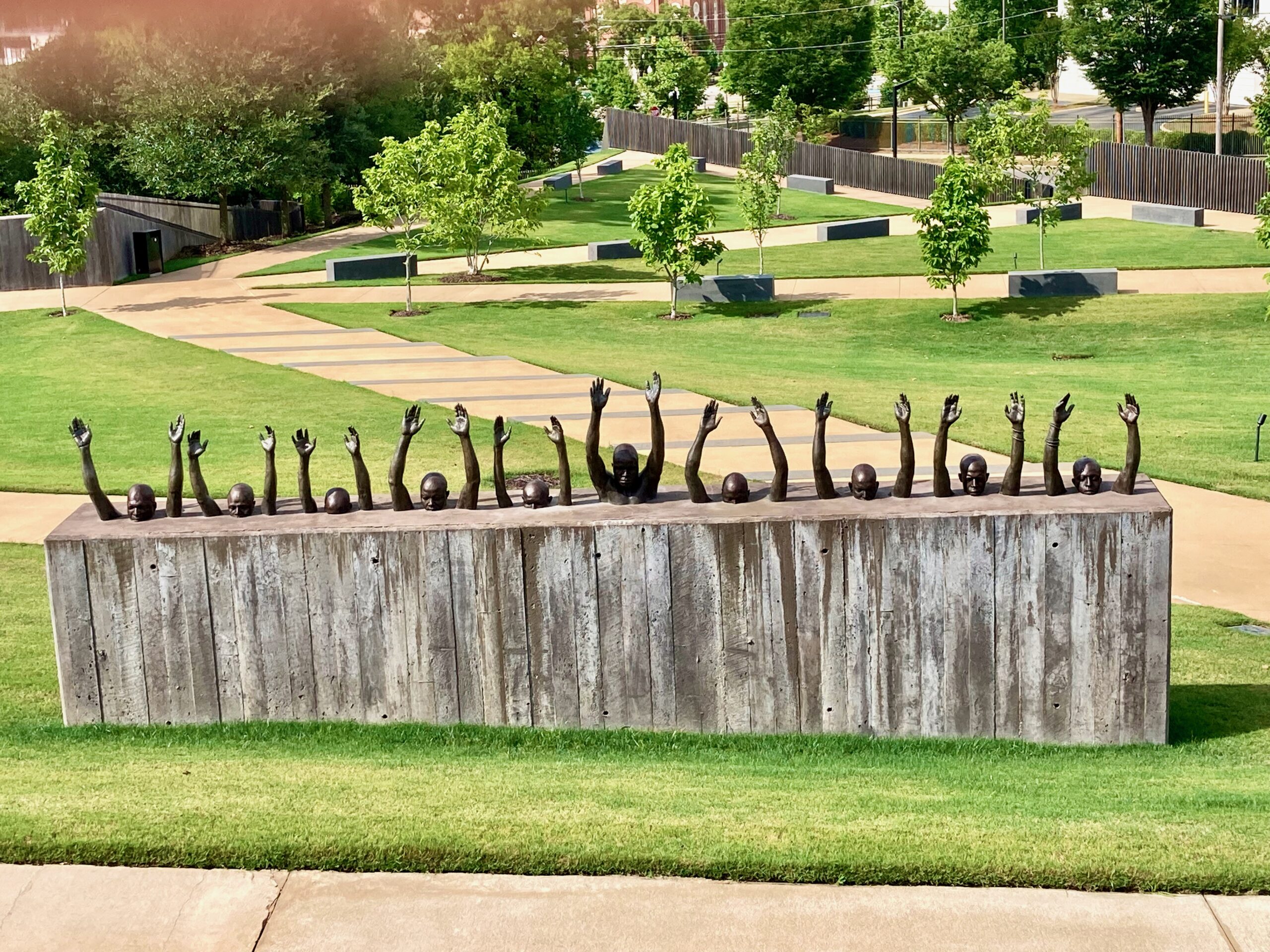
Relearning American History: A Self-Guided Tour of the South
July 7, 2021

Racism: A Global Pandemic
June 8, 2020
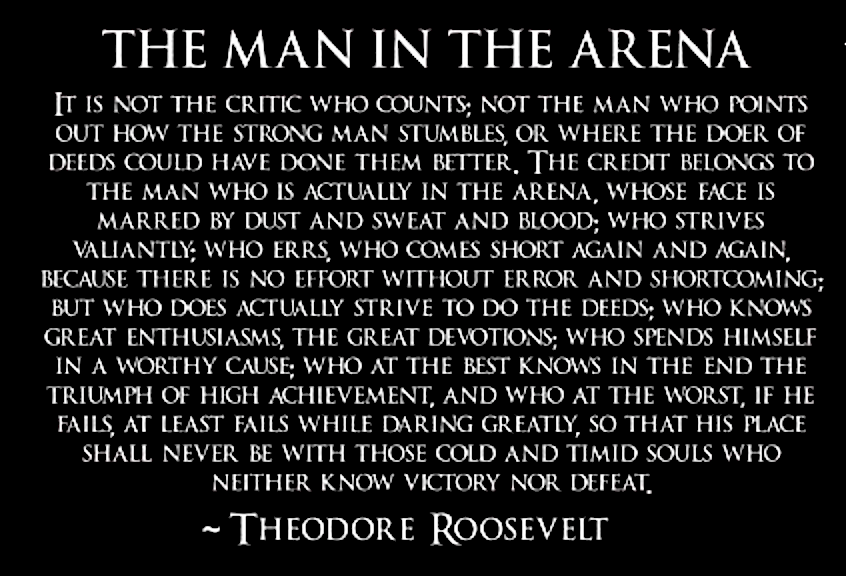
Daring Greatly
August 23, 2019
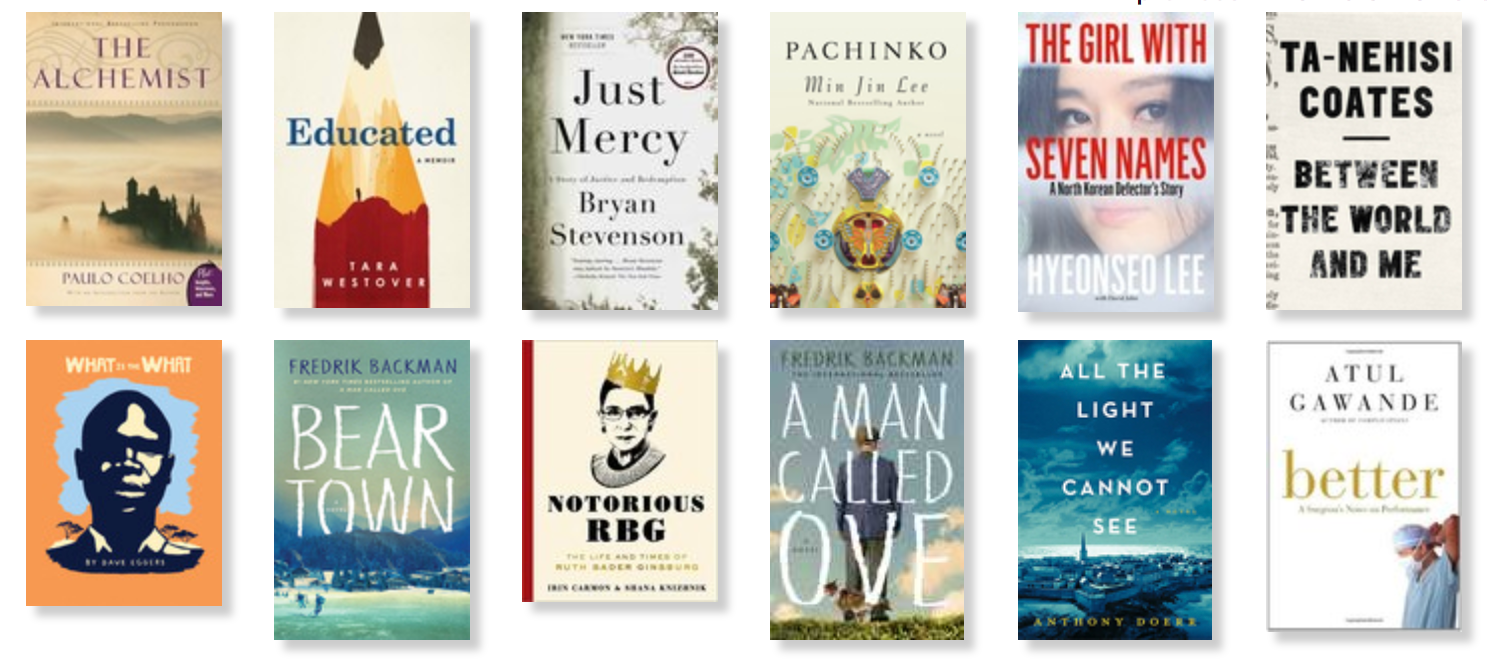
Becoming a Better Me
January 10, 2019
